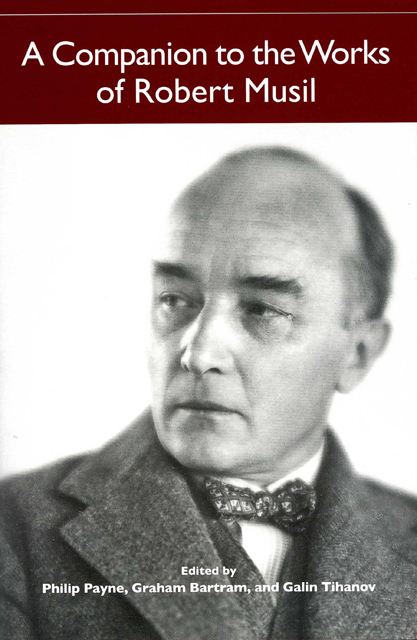Book contents
- Frontmatter
- Dedication
- Contents
- Preface
- Acknowledgments
- List of Abbreviations
- Musil's Principal Works
- Miscellaneous Frontmatter
- Introduction The Symbiosis of Robert Musil's Life and Works
- Musil's Life: Experiences, Reflections, Emotions of an Intellectual
- Literary Works before Der Mann ohne Eigenschaften
- Perspectives on Der Mann ohne Eigenschaften
- Select Bibliography
- Robert Musil's Life: A Chronology
- Notes on the Contributors
- Index
14 - “Reception without Qualities”: Robert Musil's Impact on Austrian and German Writers after 1945
Published online by Cambridge University Press: 15 March 2023
- Frontmatter
- Dedication
- Contents
- Preface
- Acknowledgments
- List of Abbreviations
- Musil's Principal Works
- Miscellaneous Frontmatter
- Introduction The Symbiosis of Robert Musil's Life and Works
- Musil's Life: Experiences, Reflections, Emotions of an Intellectual
- Literary Works before Der Mann ohne Eigenschaften
- Perspectives on Der Mann ohne Eigenschaften
- Select Bibliography
- Robert Musil's Life: A Chronology
- Notes on the Contributors
- Index
Summary
Modern Literature Engages in delineations of possibilities. Robert Musil indeed wrote in an essay of the “disturbance of the sense of reality that inheres in every work of art.” Narrators embody what Musil called Möglichkeitssinn (sense of possibility) in the medium of their selfexpression: language. Possibilities are attractive; they stimulate, generate fantasies, and satisfy utopian aspirations of writers and readers alike.
By the same token, literature knows of frustrated ambitions, inner voids, empty spaces and rhetoric. It is fully aware of the unattractive counter- world of impossibilities, part of which is the skepticism of authors regarding the suitability of language as a way to communicate. This skepticism turned into a cult around 1900, chiefly among Austrian intellectuals and poets from Ernst Mach to Hugo von Hofmannsthal.
The reception of literature, too, is a matter of possibilities and impossibilities, probability and improbability. It may be pure enjoyment or lead to creative impulses, but in some cases it does not seem to lead to anything at all, or it may engender mere indifference. There is something distinctly awkward, if not paradoxical, about the reception of Musil. It might be best characterized as both shadowy and hyper-intellectual, uneasy and passionate; it is, in short, a philologist's delight and a reader's nightmare, a playground for post-modern philosophers with deconstructionist intentions and an abyss for those who like succinct plots. Those who look for coherent plots will always be served by early Musil, in particular Die Verwirrungen des Zöglings Törleß, not to speak of Volker Schlöndorff's film version of 1966 and, up to a point, the three stories of Drei Frauen and, again up to a point, the play Die Schwärmer (The Enthusiasts). But when we speak of the reception of Musil we mean essentially the aftermath of his novelistic colossus Der Mann ohne Eigenschaften and the way in which it influenced the “possibilities” of writing or went “beyond soundings” into the impossible, the unfathomable depths of any adequate reception.
- Type
- Chapter
- Information
- A Companion to the Works of Robert Musil , pp. 395 - 408Publisher: Boydell & BrewerPrint publication year: 2010



